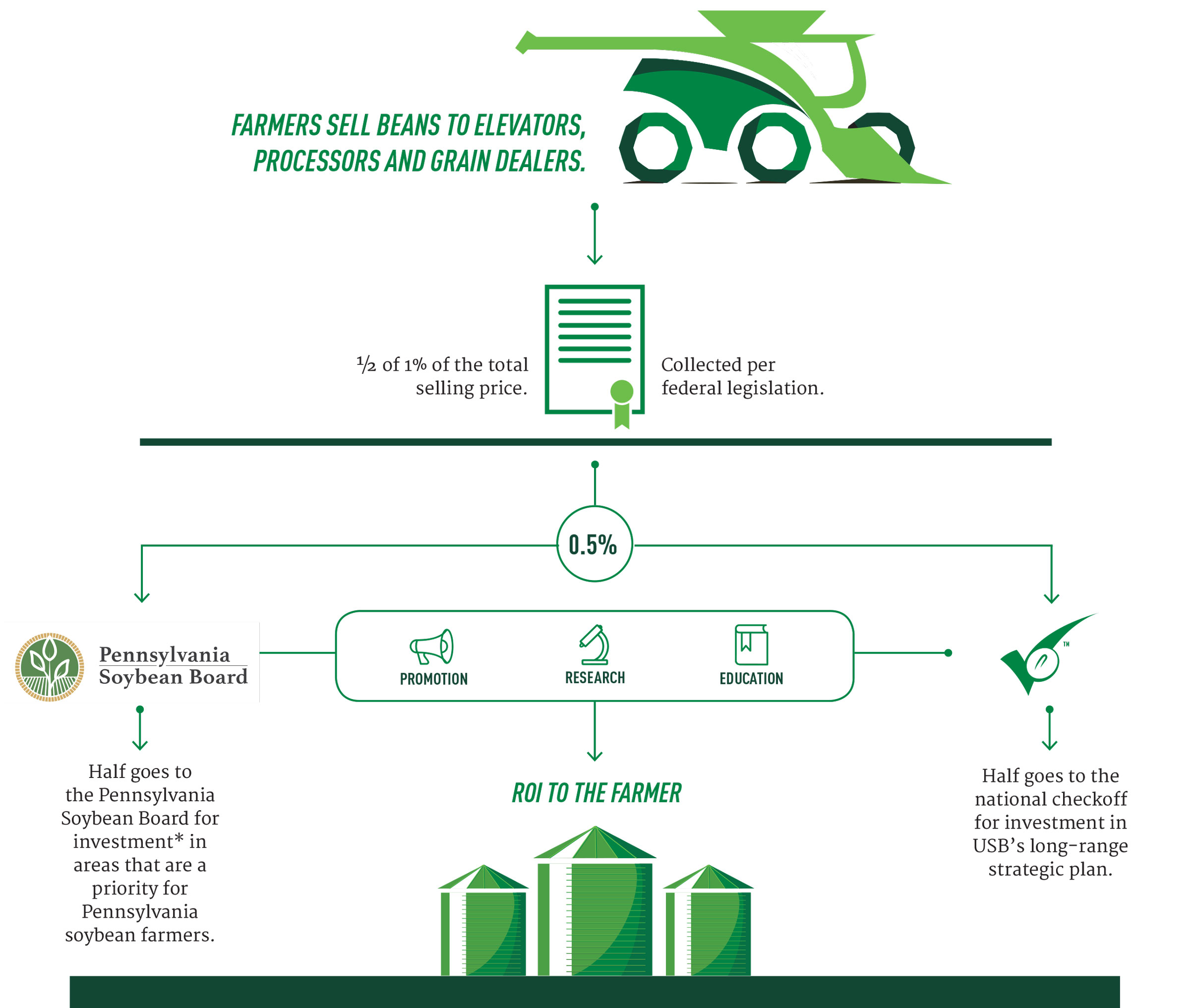Here’s How the Soy Checkoff Works
The national soy checkoff was created as part of the 1990 Farm Bill. The Federal Act & Order that created the soy checkoff requires that all soybean farmers contribute 0.5% of the market price per bushel to the soy checkoff at the first point of sale of the soybeans. These funds are used for promotion, research, and education.
*Led by volunteer farmers, the United Soybean Board and the Pennsylvania Soybean Board invest and leverage soy checkoff dollars to MAXIMIZE PROFIT OPPORTUNITIES for all U.S. soybean farmers.






